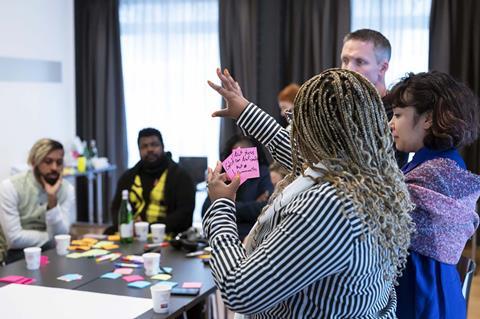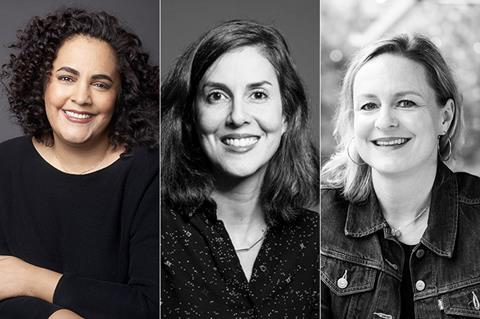
“We belong to an industry in which we think we are so inclusive and so diverse. But if you look at any decision-making juries — be they of festivals, film funds, sales and distribution outfits or other industry bodies — they are mostly all white,” says Kristina Trapp, chief executive of Eave, the European training, project development and networking organisation. “A lot of unconscious racism is happening.”
Eave’s inaugural anti-racism think tank — held last month in Trieste, Italy — is working to tackle that bias in earnest. Producers from India, South Africa, Canada and across Europe came together with plans to draft an “impactful inclusion agenda” that brings about measurable change within three years.
“Our departure point was a survey we did internally with the Eave community in November 2022. It covered how people felt [about Eave’s programmes] and what needs there are for inclusion within the community,” says Sarah Calderon, CEO of Madrid-based marketing outfit
The Film Agency, who planned the think tank, along with Trapp and Tamara Dawit, VP growth and inclusion at the Canada Media Fund.
Eave alumni — and in particular Black, Indigenous or People of Colour (BIPOC) alumni — were asked about their experiences in general in the industry and how they perceived workshops, decision-makers and tutors. There were distinct differences between the responses of white and non-white professionals.

“When we asked non-white participants, there was one word used to describe the workshops over and over again, which was ‘endless’,” reveals Calderon. “I said, ‘Why endless?’ A lot of participants said, ‘We are always ‘emerging’ because we have to go to workshops forever. We never have the moment where we’re considered as fully trained.’”
By contrast, white respondents to the survey said the opposite. “They mention Eave as a turning point in their careers, the moment where all the doors start to open,” Calderon adds.
Founded in 1988 as a European-focused organisation, in the past 15x years Eave has opened up and now has “a lot of representation from the global south”, as Trapp puts it. She has noticed, though, that Eave has attracted few European BIPOC participants. The organisation is now working closely with the Anti-Racism Taskforce for European Film, which brings together representatives from Europe’s top national institutions and film organisations, to introduce anti-racism training not only for its own staff members but for tutors, board and national co-ordinators.
Definitive plan
The think tank has produced seven key action points on which Eave will focus, both as an activist organisation and in its programmes: create a defined policy; collect data; diversify staff and trainers; reach out to attract new partners; review programmes; decolonise the curriculum; and continually evaluate all of its actions.
Dawit suggests the European industry can learn from the action Canada has taken to become a more representative and inclusive industry. “An important thing in Canada is that we have a lot of Indigenous and racialised targeted funding so that as producers become more trained, there is somewhere for them to finance their content,” she says.
Europe also needs meaningful research into, and subsequent data on, representation. “We’ve done a lot of work in Canada around audiences and data collection that helps us understand, for example, statistics such as a Black filmmaker in Canada makes a film every 10 years,” says Dawit. “We don’t even know how many Black producers and production companies there are in the EU.”
Eave’s anti-racism think tank will not solve the lack of inclusivity in the European film industry on its own. The hope is it will set an example that other similar European organisations and institutions will follow.






![The Brightest SunScreen[Courtesy HKIFF]](https://d1nslcd7m2225b.cloudfront.net/Pictures/274x183/3/5/0/1448350_thebrightestsunscreencourtesyhkiff_312678.jpg)


















No comments yet